Willard Grant Conspiracy - Interview with Robert Fisher
by John Clarkson
published: 14 / 5 / 2003
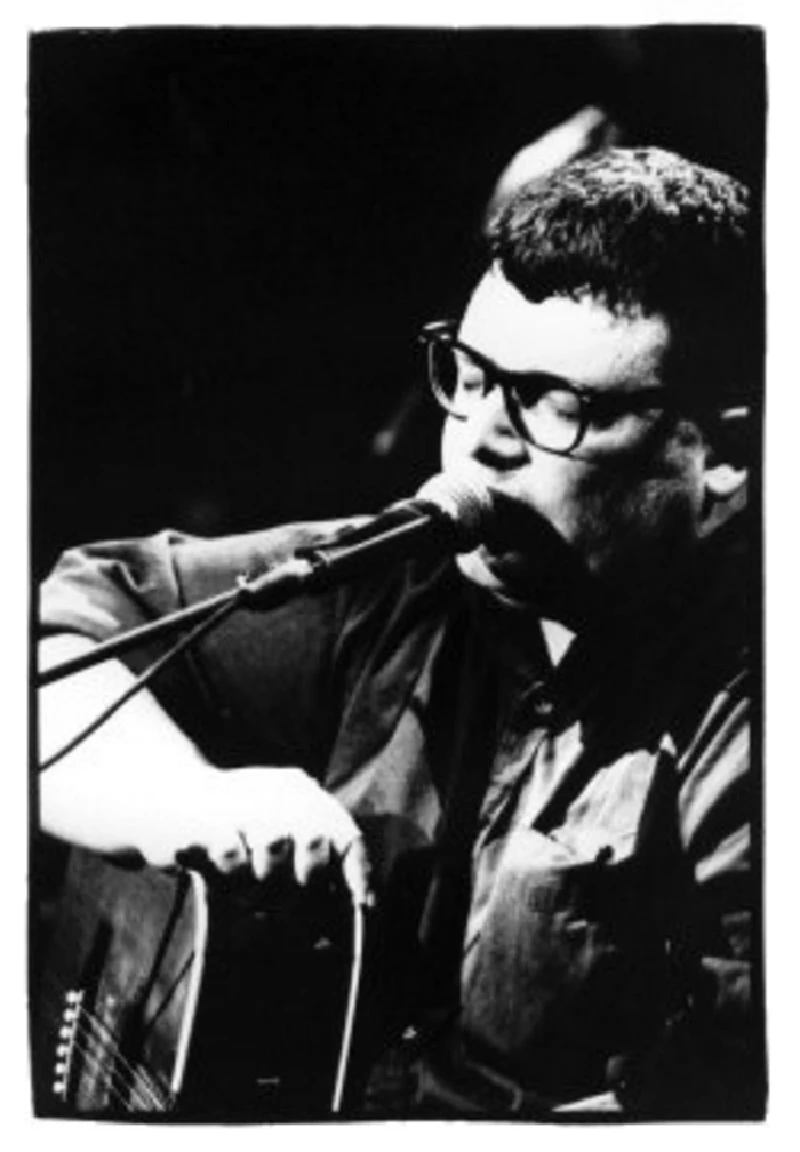
intro
The last three years have been times of particular turbulence for the Willard Grant Conspiracy. Back for a third interview with Pennyblackmusic, frontman Robert Fisher talks to John Clarkson about them and the band's new album, 'Regard the End'
The Willard Grant Conspiracy is a loose musical consortium, based around the talents of Californian-born singer-songwriter, Robert Fisher. Other personnel in the group are drafted in both as available and when required. Stage shows and concerts can feature anything between two and twelve members, while studio albums have employed the services of as many as twenty other musicians. Fisher formed the Willard Grant Conspiracy (or the WGC as it is often abbreviated) with his friend, guitarist Paul Austin, in Boston in 1996. The pair had played together previously in various other Boston-based bands, including Laughing Academy and the Flower Tamers, both of whom had recorded unreleased albums. The Willard Grant Conspiracy's debut album, '3am at Sunday at Fortune Otto's', followed later that year, and was self-released on Fisher's own small label, Dahlia Records. By the time of its second album, 'Flying Low', which came out in 1998, the band had signed to the larger Massachusetts label, Slow River. A third album, 'Mojave', followed the next year in 1999, and then its fourth, 'Everything's Fine,' in 2000. The last three years have been times of particular turbulence for the constantly fluctuating Willard Grant Conspiracy. Austin, wearying of musicindustry politics and the band's constant touring, left the band in the summer of 2001 after a final European tour and moved to Seattle, where he has now founded a new band, the Transmissionary Six (also the subject of two recent Pennyblackmusic interviews) with his then girlfriend, now wife Walkabouts drummer,Terri Moeller. The Willard Grant Conspiracy's relationship with Slow River also floundered at about the same time and came to an end. While some critics predicted the end of the Willard Grant Conspiracy, Fisher was always determined to carry on, and has recently returned with a fifth full-length WGC studio album, the ironically-titled 'Regard the End'. 'Regard the End' was begun in Slovenia in 2001 on Austin's last tour and finished over a year later in Boston in 2002. The band, like the Walkabouts with whom they have frequently toured, have always been more popular in Europe, and 'Regard the End', which is due out on June 9th, in an unusual deal, will be released in Britain on Loose Records, and in the rest of Europe through the German label and distributor, Glitterhouse. The Willard Grant Conspiracy have often been bracketed as an alternative country act. Like other groups and musicians working in the genre they use roots-based instruments such as mandolins, banjos, and strings, and their lyrics are often character and narrative-driven. The group's influences, however, are wide and varied, and encompass a rich musical tapestry which, stretching far past country, includes Bob Dylan, the American Music Club, the Velvet Underground. the Screaming Trees and Sonic Youth. In recent years, Fisher has become increasingly interested in traditional folk music. A mini WGC album, which was recorded over two days in Holland with the Dutch electronic duo Telefunk and which was released as part of the 'In the Fishtank' series on the Konkurrent label in early 2002, served as an early blueprint for this,and combined the lyrics from early ballads and songs with Telefunk's techno beats. 'Regard the End' takes this concept further. Four of the tracks are traditional songs with reworked music. Others songs still on the album, although written by Fisher, similarly balance the traditional with the modern. In what is our third interview with him, Pennyblackmusic caught up with Fisher, who will shortly be moving back to California after over 20 years of living on the East Coast, to talk about 'Regard the End' and the last few years. PB : 'Regard the End' took its original genesis two years ago in Slovenia, when you had some time off between European tour dates. How did the sessions for the album begin ? RF : We were in Ljubljana and we had a few days off between shows. I knew we were going to have a few days off and, rather than just sit around, was looking to have some fun in the studio. I asked Chris Eckman from the Walkabouts if he knew a good studio to work in, and he knew just the one. It was funny because I had this picture in my head of a little garage studio or something like that, but when we got there the place was amazing. It was one of the best studios that I had ever walked into really. We didn't intend to begin the record then. We already had some songs though, and some others started to invent themselves on the spot. By the time the three days of studio time were up we all knew that was what we had done, and that the record had already started. PB : What songs from that initial session actually ended up on the album ? RF : 'The Suffering Song' was one. 'The Trials of Harrison Hayes', 'Beyond the Shore', 'River in the Pines' and 'Another Man is Gone' were the others. There's a couple of songs that aren't on the record that we started there as well. PB : That's half the album really ! RF : Yeah, that's right ! 'Beyond the Shore' invented itself while we were there. 'Another Man is Gone' was also like that . We went back to Slovenia a few months later and laid down the tracks for the rest of it, because we wanted to get the original basic tracks sounding the same. We then brought all the discs back to Boston and did the overdubs over here for all the people that couldn't make it. PB : Four of the songs on 'Regard the End'-'River in the Pines', 'Twistification', 'Another Man is Gone' and 'Day is Passed and Gone'-are traditional songs with reworked music. Where did you first discover them ? RF : I had been considering for a while this idea of taking original music and then drawing parallels and comparisions with the way my own songwriting was moving. I noticed , as far back as 'Mojave', for example. that some of my songs even then had a traditional theme or were bent towards that. I was aware also that personally, as a songwriter, I wanted to explore that concept further, so I started collecting books on folk music and lyric books and things like that. The Lomax books were some of the best. I read those books, and looked at the lyrics in great detail. Some spoke to me more than others, but one of the things that I noticed was the incredible resonance of some of those songs. They're maybe two hundred years old, but they're just as true now as they were then. They just have this-for lack of a better word-timelessness about them. My approach to music has always been lyric-driven.I didn't want to rewrite the lyrics, which is what a lot of people have done working with traditional tunes. I decided instead to take the lyrics and allow them to suggest the song. I thought, however, that it was really important to bring the music forward, rather than just to do straight covers. It is within the tradition of folk music to do so. The purists would definitely argue against that though, although the record is not really for them anyway. In putting those songs on the album, I was also saying "Here are a bunch of 200 year old songs that mean something today." In the face of all the complete musical crap that's out there, and at a time in which the music business is crying out that they can't make any money, but they're still putting all this garbage out that doesn't mean anything to anybody, I was in my own way also making a little political comment. PB : In complete contrast the album also features'Soft Hand', which has a classic pop sound. Why did you decide to put that on the album ? RF : I wrote 'Soft Hand' during the period we were recording the album. I've always felt that recordings are at their best when they are a good snapshot of where you were at the time you were doing them. It is like all our records. It's just a document of where we were at the time we were doing it. It was a real pleasure to record that song. Dennis' horn on is great, and the descending George Martin/Beatles style chords which underlie the whole chorus were great fun to do. It is a very straightforward lovely little pop tune. PB : Why did you decide to call the new album 'Regard the End'. RF : Like a lot of our titles of ours, like.'Everything's Fine', and also 'Mojave' and 'Flying Low', all of which are the same way, 'Regard the End' has got more than one meaning. First of all it is my family motto. I discovered that when we were in Scotland four years ago. I was looking at a book on heraldry, and I came across the Fisher family crest in it. On it in Latin were the words 'Regard the End'. The philosophy and thought behind the phrase for me is that, if you live life with regard to end , and accept that it is temporary rather than permanent, then you end up living a more full life. In thinking about these songs in particular, and the things that go into music and art, I realised that the big subject for all artists, at one point or another, is death. Many of the songs on the album are about death. It's only by examining your relationship to your death that can you know how to live, and you have to come to terms with your death to figure out how you are going to lead your life.That's one of the reasons for that title being on there. There is also an element of black humour to it well. Paul appears on the record, but it was the first record that we made without him being actively involved. Some people thought that the band would not go on without him. I put the title on it because of that as well. Paul incidently wasn't one of those people. We are still friends. I know that he wishes the WGC well, and I wish him well. PB : It's been nearly two years since Paul left. He's now living in Seattle, and is doing his own thing with Transmissionary Six. Do you see his decision, therefore, to leave the band as a positive thing for both of you ? RF : Yeah ! I do. PB : Why ? RF : He was unhappy. Why force someone to stay in something when they don't want to be there ? The Willard Grant Conspiracy has always been about people being able to leave when they need to. I don't see that Paul is any different in that respect. I think that, all in all, it's a better thing. For him it is certainly a better thing. He's much happier now. For me it is also definitely a better thing too, because I no longer have to feel responsible for someone who is unhappy. Paul was unhappy for the previous two or three years before he left. When you care about somebody, and when you care for their well being, and you're also trying to juggle the responsibilities of doing what we're doing, that can be really hard thing to deal with. From that point of view it was, therefore, certainly a good decision, and from the point of view that, as far as I know, there's nobody in the band now who doesn't want to be there , that's also a really positive thing.It makes touring better. It makes playing music better. It's also allowed me the opportunity to play more guitar, and also to start taking the guitar out of the centre of the songs, both of which I had been looking for a way of doing anyway. PB : You began that process on 'Everything's Fine', didn't you, by putting Peter Linnane on that in the middle with his piano ? RF : Exactly ! That was something that I was really working towards anyway. All in all I, therefore think that it has been a really positive thing. Other than the fact that Paul is a really old and close friend, who I don't see very much of now, I don't see any negatives about it. PB : Paul bookends the album , making guest appearances on the first track 'River in the Pines' and then on the last track 'The Suffering Song'. Was there any symbolism intended in that, or was that purely coincidental ? RF : It was purely coincidental. I didn't actually sequence the record. Jeff Lipton at the Peerless Mastering studios in Boston did that. That's for me one of the most personally interesting stories of the record. We actually did the overdubs while we were touring across the United States. By the point we got to mastering and sequencing I was just way, way too far into the record. I had been working on the album for over a year, and was too close to the record to see how to do it. It was just impossible. Jeff came to the rescue with that. He has done nearly all our records, so I had no problem handing him over those tasks. He was a little scared of doing so, but he did a gorgeous job of both mastering and sequencing the record. It flows really beautifully. It's really stunning. Anybody who has heard any of the original tracks, although those are very beautiful, will tell you that he has added some really incredible stuff. PB : The album finishes with 'The Suffering Song'. The final line-"Suffering is gonna come to everyone someday"-is repeated over and over.That's a pretty scary line. Do you see that in some ways as a summary of the album , with all the songs on it about death? RF : The story of the song is actually a real story. A friend of mine had this very tight knit family, and his mother passed away suddenly. This was the kind of family where the kids would get together even though they were all grown up at essentially any excuse. When his mother died, however, the family just disassembled. It was only in her passing that they understood that she was really significant at holding the family together. Without her,there was no real centre to the family and no real reason for everyone to get together on a regular basis. All that is very sad, but it is certainly not unique. When you come from a family with such a strong centre, you often see yourself as a satellite to that family. Once that's not there anymore, you beome independent of that family. That is what happened to my friend. It allowed him to develop beyond where he really was, so that was actually a really positive thing. In a way 'The Suffering Song' is a story about grief. It's about we grieve. We all have circumstances that come to us, and in our grief we have to learn to accept and let go of them, and then come out of the other side of it changed, but hopefully changed for the better. At the end that whole repeated chords and lyric scenario is almost like a hymn. To me it has an uplifting quality. It's like when you go to a blues show, you don't come out if feeling depressed. One time I was watching a blues documentary on the television, and this old blues musician came on and described the blues as a process of examining the dark to find the light. I think in a lot of ways that's what our music is like as well. Even though we're not a blues band, there is a kind of blues element to our music and that song in particular. I would agree in that sense that it does sum up the tone of our music. There are others songs on the record that do that as well though. 'The Ghost of the Girl in the Well' is really the centre line of the record. I think that song defines the whole theme of the record. You can't tell if that song was written now or 150 years ago. It takes the idea of traditional music versus modern music which runs through the album to a natural conclusion. PB : One of the great pleasures of talking to you about your songs is that you always come away with your own interpetation of the songs added to in some ways. I had 'The Suffering Song' down as much darker than that. RF : The songwriting thing for me is about writing stories that have enough gaps in them so that they don't tell the whole story. The listener's brain provides the links between the gaps. Where those links come from is his or her own personal experience. This allows the audience or the listener to inhabit the songs and make it something of their own. I don't think of the songs as my songs. They are what they are at that point. They have their own life to them, and once they get processed through somebody else's experience they take on a whole different meaning. I don't think that's any less valid really. 'Another Man is Gone', one of the traditional songs on the album, for instance, is a slave chant in its original form. I see it originaly as a discussion about slavery and authority. People have come up to me though and said that is a great anti-war song or a great anti-capital punishment song. It'slike "Okay ! You're right.". Was it intended that way though ? No, probably not. PB : The album features several regular WGC players, such as Simon Alpin, David Michael Curry, Peter Linnane and Pete Sutton, but also a lot of new names who haven't appeared on the WGC's records before such as Yuko Murata, Josh Hillman, Dennis Cronin, and Drew O' Doherty. Who are these people ? RF : It's actually Simon's first time on a record. Josh has been part of the live band for a few years now, while Yuko has been part of the live band for more than a few years. We've just never got them on a recording before. Dennis has been playing with us for about three years or so now. He is also a member of Lambchop, and was with them on a couple of the early records. He has moved now from Nashville, but still sits in with them live when he gets the opportunity to. Drew O' Doherty is this amazing singer-songwriter in his own right, who plays with a bunch of his own bands. He plays with Ted Leo, a band called the Ivory Coast, and also with us. He joined us just before we finished the overdubs of the record. I had him come up and put a couple of things on the record, as he really is a special talent. Hopefully he'll do his own record eventually. We also have worked on this album with various special guests. John Dragonetti from Jack Drag was one. He is just amazing. I went to him to ask if he would collaborate on the rhythm tracks for 'Soft Hand'. I wanted it to have a natural drum sound, but I wanted it to have a loop sound as well. He did that and also added some guitar stuff and things like that. People have commented on the electronic nature of those loops, but they're not electronic (Laughs !). Thanks to John, they're real. John's girlfriend Blake Hazard is a singer as well and is a really good songwriter. She's got her own record out and she sings on 'Soft Hand' also. Jess Klein, who toured Europe with us a couple of years ago, is there as well. I brought her in to sing a couple of songs, and she ended up appearing on seven of them. I have also listed Chris Eckman from the Walkabouts as a band member, because he was at the original sessions in Slovenia. His involvement was important in creating the sound of the record. As usual, it's just an embarassment of riches. Once again I am just completely blown away by the the group of people that have participated in making the music happen. Whether it's lesser known or better known people, or engineers or mastering people. I can hear the personality of all the people involved in its recording. That's a very humbling thing. PB : The band is often described as an alt. country band,but that only tells a very small part of the story. The band has always been a lot more than an alt. country group, but you've obviously found yourself labelled under that banner. You career in Britain was launched after 'Evening Mass' from Flying Low' appeared on 'Uncut' magazine's first 'Sounds of the New West' country comp. Do you see being classified under that genre as a blessing or a curse or both now ? RF : A little bit of both. That particular genre is very ill defined.There's just so many bands that are called that, but which have little in common with each other.There are a lot of groups which are hybrids, but which find themselves under that genre. Lambchop and Calexico and Giant Sand are some of the more obvious ones. I think that's closer to where we're at.We've never been about country music. I'm not a scholar of country music. I think that we have got that tag because we have used mandolin and fiddles,and sang songs about small towns and dark things. I listen to Lambchop, and hear Pere Ubu and Giant Sand far more though then I do Hank Williams. Howe Gelb from Giant Sand has been been playing and doing music for 28 years or something like that, and, although he is considered the Godfather of the whole alt. country thing by some, I don't think he would be comfortable with that mantle particulary either. PB : This is many ways your most versatile album yet. Do you see it as breaking down this kind of labelling once and for all ? RF : I don't know. We'll see (Laughs). That's probably a question we'll answer in years to come. I have always tried to throw curveballs though. 'Mojave' and "Everything's Fine' is full of them. Sometimes you just find yourself with a label and a genre stuck on you though, especially perhaps if you're in an underground band. I was just reading a great interview with Vic Chesnutt. The writer was saying how , in a much better and more perfect world, Vic would have a row of Grammys on the mantelpiece and people would know his songs because they were being played on the radio, in the same way that twenty years ago people played the Band on the radio. That world, however, doesn't exist anymore. Now bands that would have been mainstream radio bands, big bands like the Band or any other number of people we could talk about, become relugated to indie status because the indie labels are the only labels where you can develop a musical sound. The Talking Heads are a perfect example. If they came up today, a major label would never let them develop. The roles have reversed. It's a shame that we have marginalised the most interesting music by letting that happen. I say "we". It's a collective "we". At some point the major record labels made the decision they were only going to concentrate their market on people between the ages of 12 and 15, and were going to ignore the rest of their consumer base. It's only through things like Pennyblackmusic that people can find out about new things. There's no mainstream way to do it. Every once in a while something creeps through, like a Macy Gray, and manages to make it. That's a good example of a potentially great artist who managed to sneak through because she had a catchy song and it was played over and over until it finally sunk into everyone's heads. I think that was down though more to accident than anything else. PB : Last few questions. This is the first WGC album not to be released on Slow River. Why did you decide to break up with Slow River ? RF : Rykodisc, of which Slow River was a subsidary, changed. They got bought up by another label. It became apparent then about three years ago at the time of 'Everything's Fine' that they were no longer interested in what we were doing. They didn't do anything to sell 'Everything's Fine' or to work the record. In hindsight also I found that people at the label were saying "don't push this record." I decided that if I wasn't going to get any support from them I didn't want to be working with them, and consequently I did this record all on my own money, so I am now about $20,000 dollars in the hole. We are now signed to Glitterhouse and Loose Records in Europe. They are both record labels with whom we have a long history with.Tom Bridgewater from Loose did the original press on 'Flying Low'. Glitterhouse picked up our very first record, '3am Sunday at Otto Fortune's', and put it in their catalogue, and always acted like we were part of their label even when we were on Slow River. They would do things like print our tour dates. It seemed quite natural to go with those two, and so far, in complete contrast, it's been complete perfection. PB : Do you have anyone to release it in the States yet ? RF : Not yet. I'm working on it. PB : You're about to move back to California after 20 odd years of living on the East Coast. Why have you decided to move back there ? RF : I love Boston. I love the East Coast, but it's very expensive to live here, and as a musician, I make no money.The last three or four years, as I have been travelling , I have been looking around and thinking "Could I live here ?" An opportunity came up for me to go home. The desert is a place I really like, and the place where I am going to be living in Lancaster in Southern California is on the edge of the Mojave desert, and about an hour and half from Los Angeles International Airport where I can buy a cheap ticket to almost anywhere, which is, of course, important to my musical career. PB : Were you brought up around about that neighbourhood ? RF : I have always had family there, and have spent a lot of time out in the desert, so the whole area is very comfortable with me. Palmdale is actually where my family is, which is right next to Lancaster. They're sister cities. PB : How do you see this affecting the WGC ? RF : I don't really. The way it's arranged is a loose thing.People play in it when we have things to do, and outside of that they do their own thing. I think that it will require a little more organisation. It may mean a little more money being spent on certain aspects of it such as rehearsals, and flying here and there. It's either going to be a real thing or it's not, though. For the last seven years I have supported Willard Grant out of my own pocket, and I can no longer afford to do that . It has to learn to exist on its own and I have to allow it to exist on its own. In some ways it will change, but only hopefully for the better. PB : What's going to be next for the band ? RF : Touring. We start touring in the UK on August 23rd at the Canterbury Fayre. We're playing the same night as the Incredible String Band ism playing. I'm very excited about that. We're also playing the same night Robert Plant is playing, which should also be great. It is going to be a full European tour, and we're going to be out until mid October. PB : Whose going out on the road with you this time ? RF : I don't know. It depends on the budget more than anything else.The minimum I am hoping for is five, but I am aiming for seven. PB : You said the last time we spoke that you see the WGC as "a happy accident" ? Do you still see it that way ? RF : Yeah ! I do. To me I write these really simple songs,and these people come and do this great stuff with it. To have all these great people playing on it is an incredible honour. The music has taken me to places that I would have never gotten to otherwise, and caused me to have friends that I wouldn't otherwise have. It's well worth the sacrifice. I hate it when musicians whine and complain about making music and not having enough of this or that. This is something you choose to do willingly, and if you really don't want to do it step out of the way because there are a bunch of other people who are really talented who would love to be there. For me, there's no two ways about it. It is a struggle to make it work, but it is so worth it. Every time you go to a place, and somebody wanders up to you after we have played and says "Your music means a lot to me, or has got me through this" that is a remarkable thing. I don't take it is an ego thing. i feel like it is almost like a mission. I feel like the music drives the mission. The music is in its own way it own living, breathing entity,and is more important than any one member of the band, including myself. PB : Thank you. The black and white photographs that accompany this article were taken by Laurent Orseau and appeared originally on his website www.hinah.com
Band Links:-
https://en-gb.facebook.com/WillardGrantConspiracy/https://twitter.com/willardgrant
https://www.willardgrantconspiracy.com/
https://en.wikipedia.org/wiki/Willard_Grant_Conspiracy
Picture Gallery:-
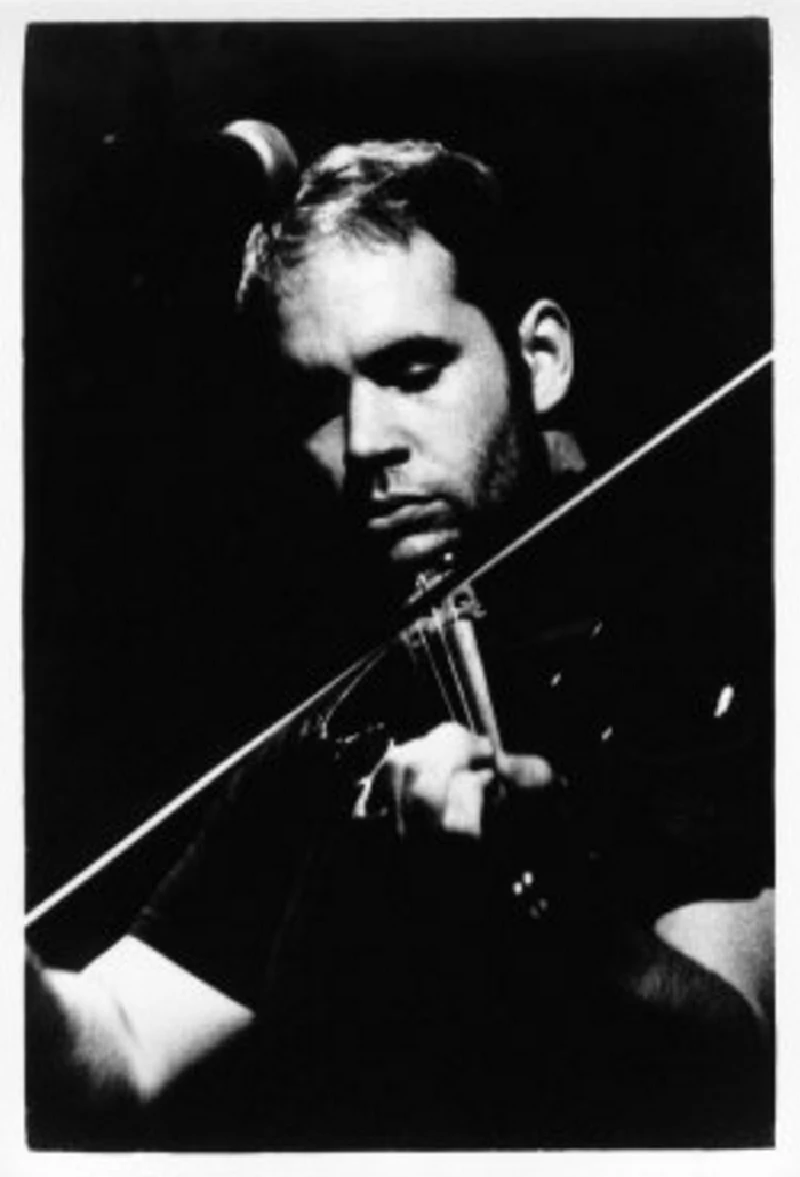
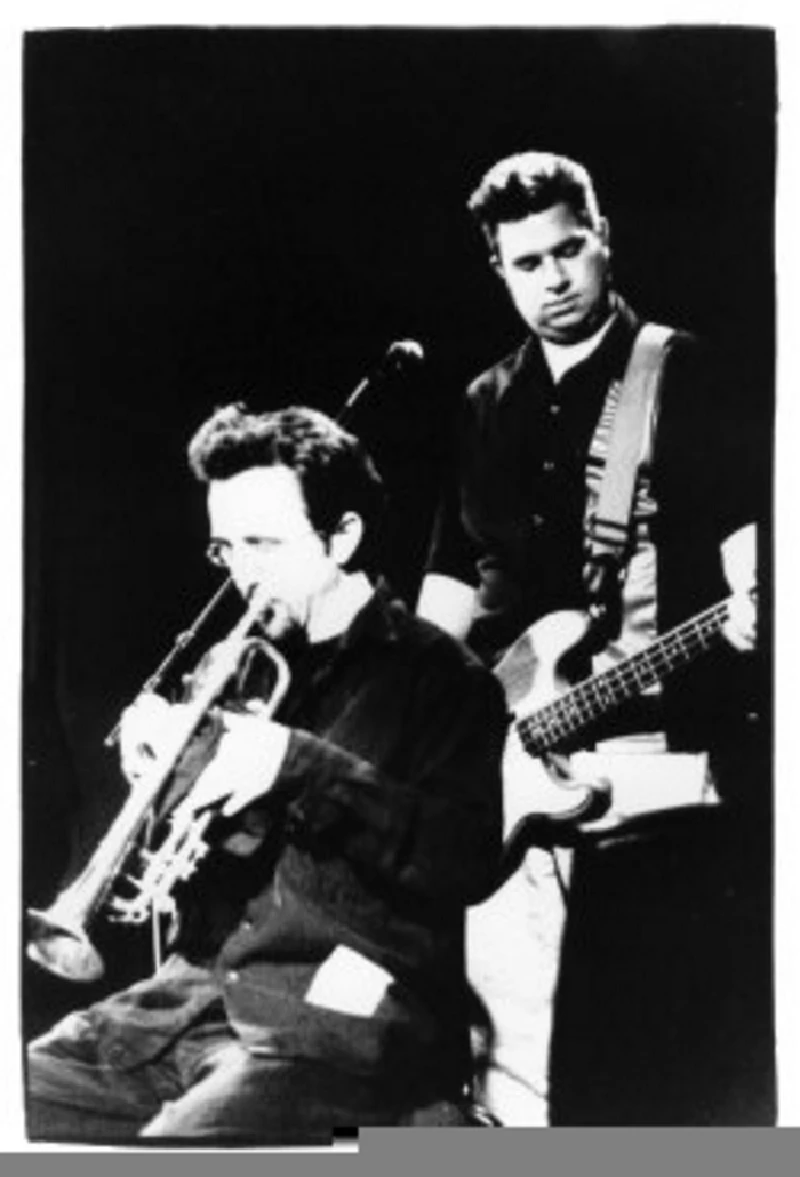
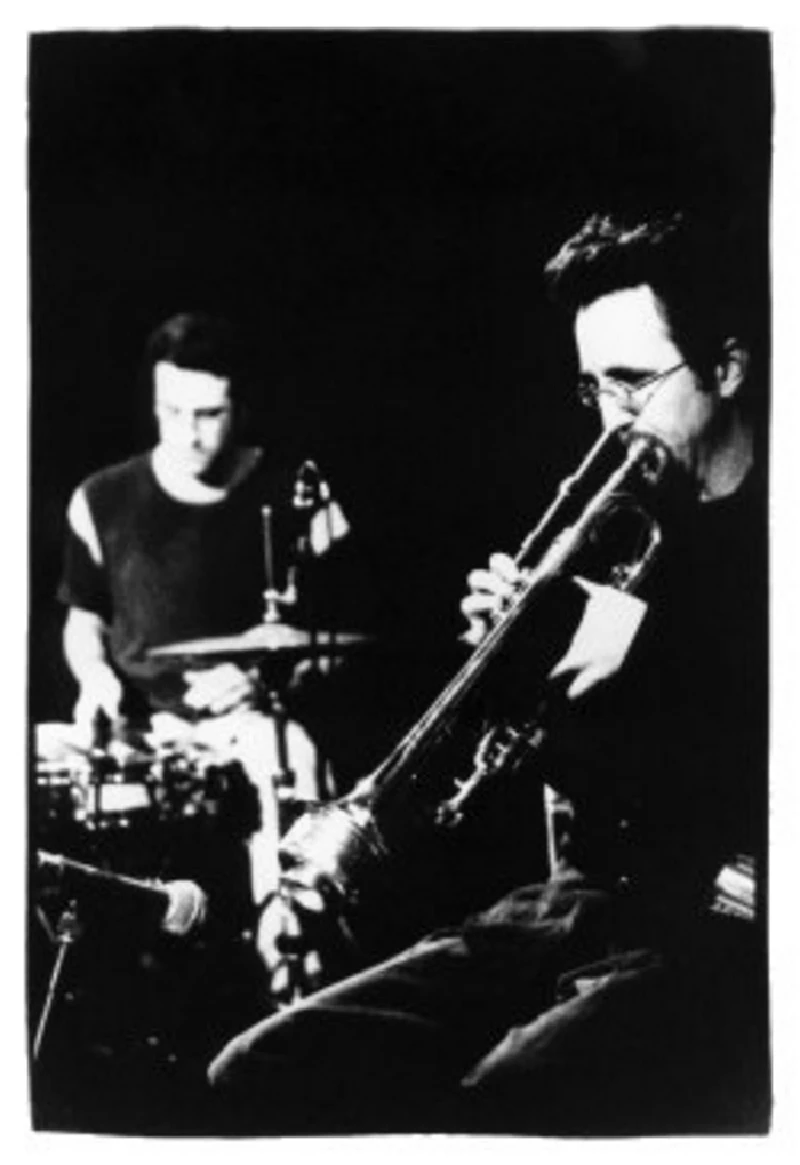
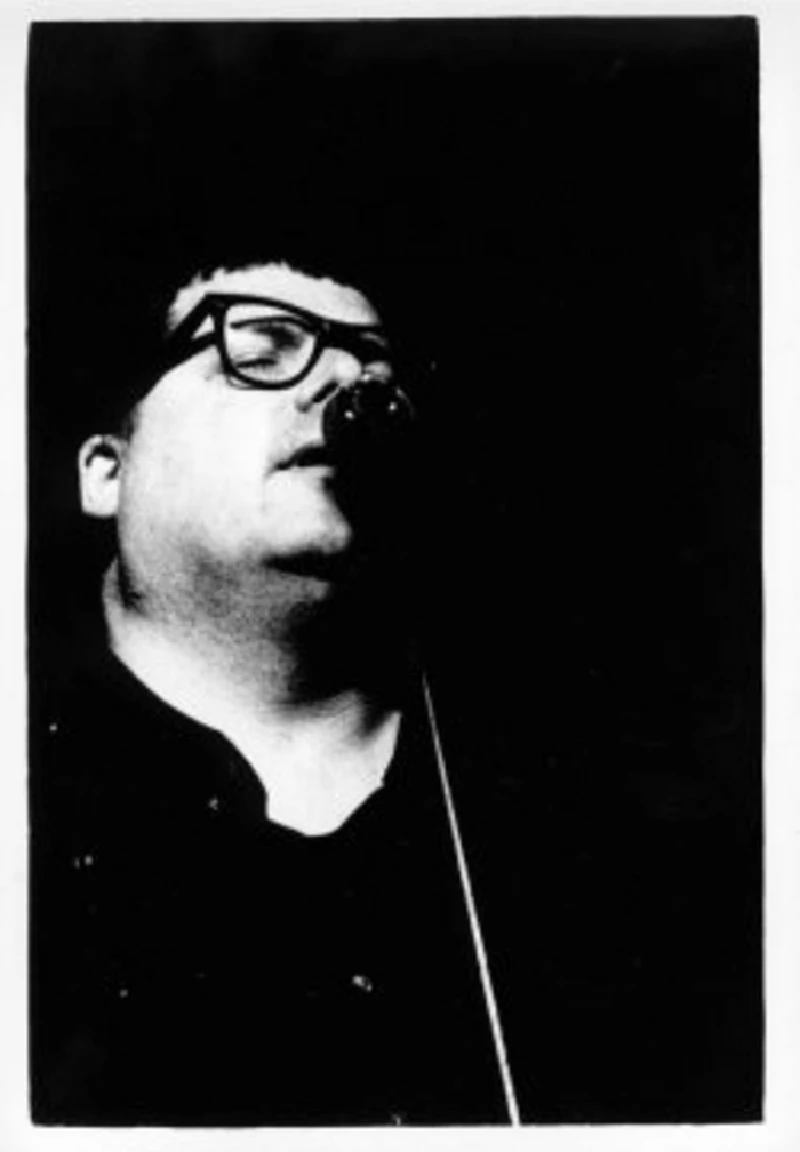
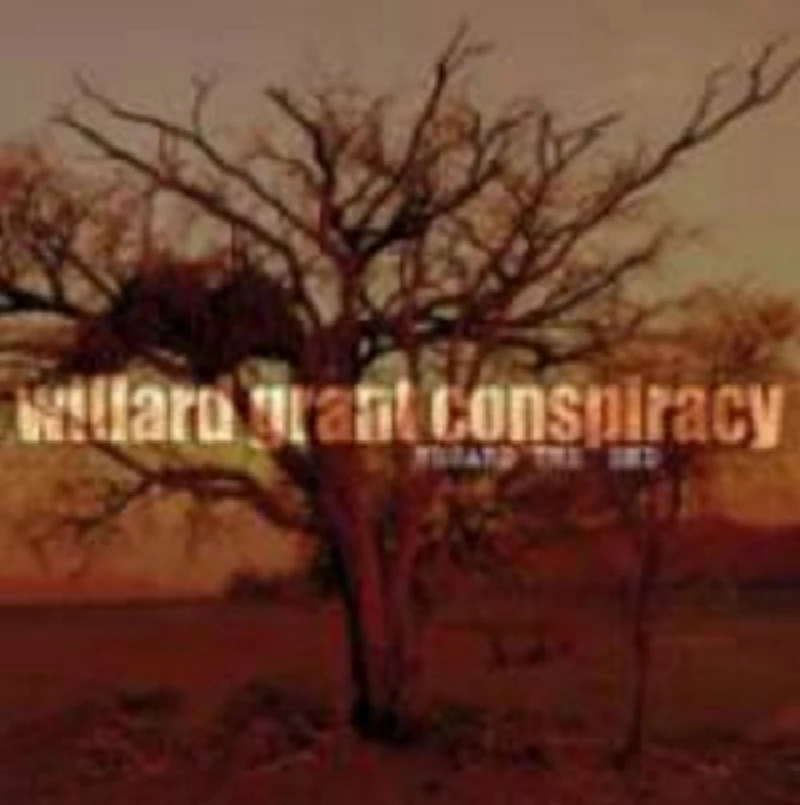
interviews |
|
Interview with David Michael Curry (2019) |
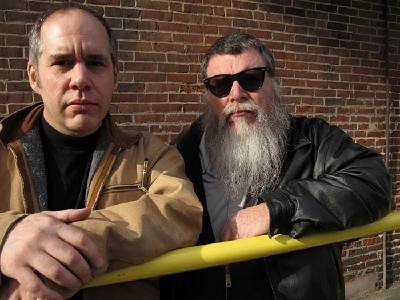
|
| Willard Grant Conspiracy viola player David Michael Curry talks to John Clarkson about its tenth and final album 'Untethered' which was completed after the death of its front man Robert Fisher during its recording. |
| Interview (2013) |
| Interview (2009) |
| Interview (2008) |
| Interview with Robert Fisher (2006) |
| Interview Part 2 (2000) |
| Robert Fisher Interview (2000) |
| Interview Part 1 (2000) |
live reviews |
|
Garage, London, 18/9/2009 |
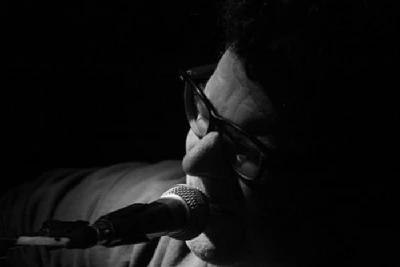
|
| In an evening fraught with difficulties and distractions, Ben Howarth at the Garage in London watches Robert Fisher's Willard Grant Conspiracy, against the odds and a heavily reduced stage time, play a riveting and forceful set |
| Majestic Theater, Detroit, 24/9/2009 |
| Bloomsbury Theatre, London, 18/5/2008 |
| Luminaire, London, 9/11/2007 |
| Dingwalls,, London, 9/5/2006 |
| Edinburgh Village, 11/7/2002 |
features |
|
Ten Songs That Made Me Love... (2017) |
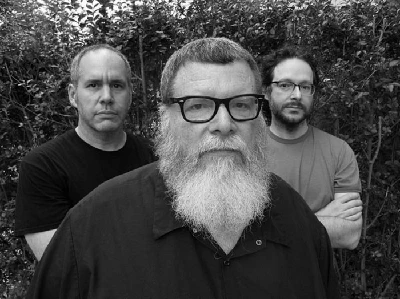
|
| In 'Ten Songs That Made Me Love...' John Clarkson pays tribute to Robert Fisher from the Willard Grant Conspiracy, who died at the age of 59 in February and who we interviewed many times and headlined our Bands Nights on four occasions |
reviews |
|
Untethered (2019) |
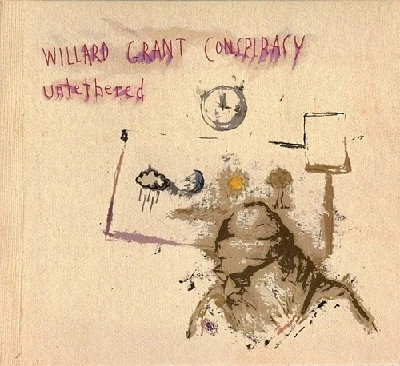
|
| Evocative tenth album from Willard Grant Conspiracy which features the last recordings of its front man Robert Fisher who died in early 2017 |
| Paper Covers Stone (2009) |
| Regard The End (2003) |
| Everything's Fine (2001) |
| Mojave (2001) |
most viewed articles
current edition
Carl Ewens - David Bowie 1964 to 1982 On Track: Every Album, Every SongArmory Show - Interview with Richard Jobson
Colin Blunstone - Thalia Hall, Chicago, 16/7/2025
John McKay - Interview
Visor Fest - Valencia, Spain, 26/9/2025...27/9/2025
Bathers - Photoscapes 1
Billie Eilish - O2 Arena, London, 10/7/2025
Robert Forster - Interview
Loft - Interview
Sir Tim Rice - Interview
previous editions
Heavenly - P.U.N.K. Girl EPManic Street Preachers - (Gig of a Lifetime) Millennium Stadium, Cardiff, December 1999
Beautiful South - Ten Songs That Made Me Love...
Oasis - Oasis, Earl's Court, London, 1995
Trudie Myerscough-Harris - Interview
Prolapse - Interview
Pixies - Ten Songs That Made Me Love...
Coldplay - Wembley Arena. London, 16/8/2022
Boomtown Rats - Ten Songs That Made Me Love....
Simon Heavisides - Destiny Stopped Screaming: The Life and Times of Adrian Borland
most viewed reviews
current edition
Sick Man of Europe - The Sick Man of EuropeAmy Macdonald - Is This What You've Been Waiting For?
Phew, Erika Kobayashi,, Dieter Moebius - Radium Girls
Lucy Spraggan - Other Sides of the Moon
Davey Woodward - Mumbo in the Jumbo
Alice Cooper - The Revenge of Alice Cooper
Bush - I Beat Loneliness
Blueboy - 2
Suzanne Vega - Flying With Angels
Cynthia Erivo - I Forgive You
related articles |
|
: Interview (2023 |
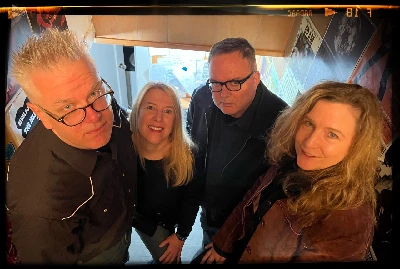
|
| In the first part of a two part interview, both parts which we are running consecutively, guitarist Paul Austin talks to John Clarkson about the reformation of his band The Transmissionary Six after a decade-long absence, and their new album, 'Often Sometimes Rarely Never'. |
| : Interview (2023) |
| Willard Grant Conspiracy/Big Hogg: Feature (2015) |
| Tom Bridgewater: Interview (2015) |
Pennyblackmusic Regular Contributors
Adrian Janes
Amanda J. Window
Andrew Twambley
Anthony Dhanendran
Benjamin Howarth
Cila Warncke
Daniel Cressey
Darren Aston
Dastardly
Dave Goodwin
Denzil Watson
Dominic B. Simpson
Eoghan Lyng
Fiona Hutchings
Harry Sherriff
Helen Tipping
Jamie Rowland
John Clarkson
Julie Cruickshank
Kimberly Bright
Lisa Torem
Maarten Schiethart